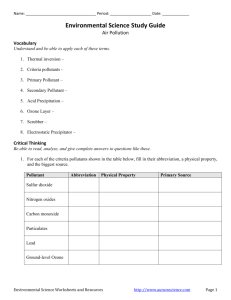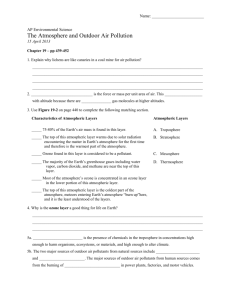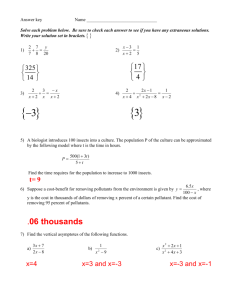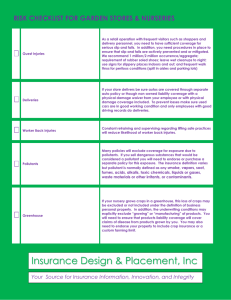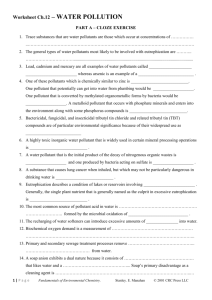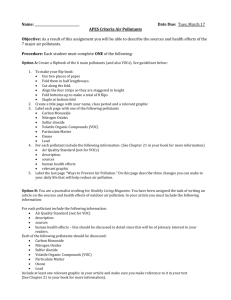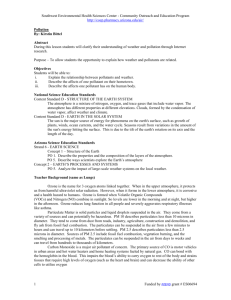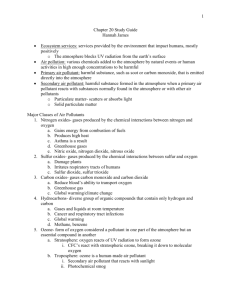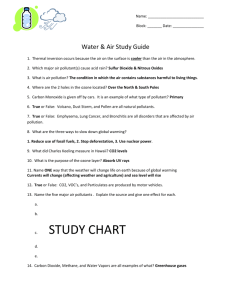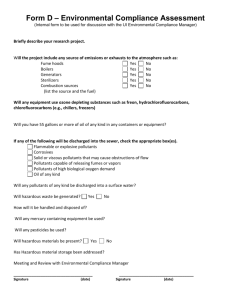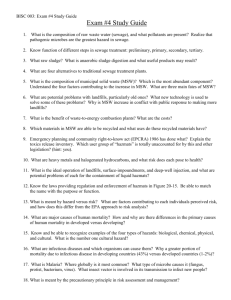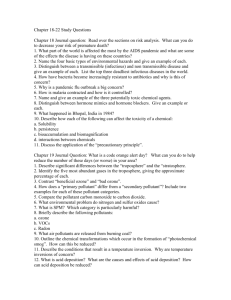Charge Questions - Task Force on Hemispheric Transport of Air
advertisement
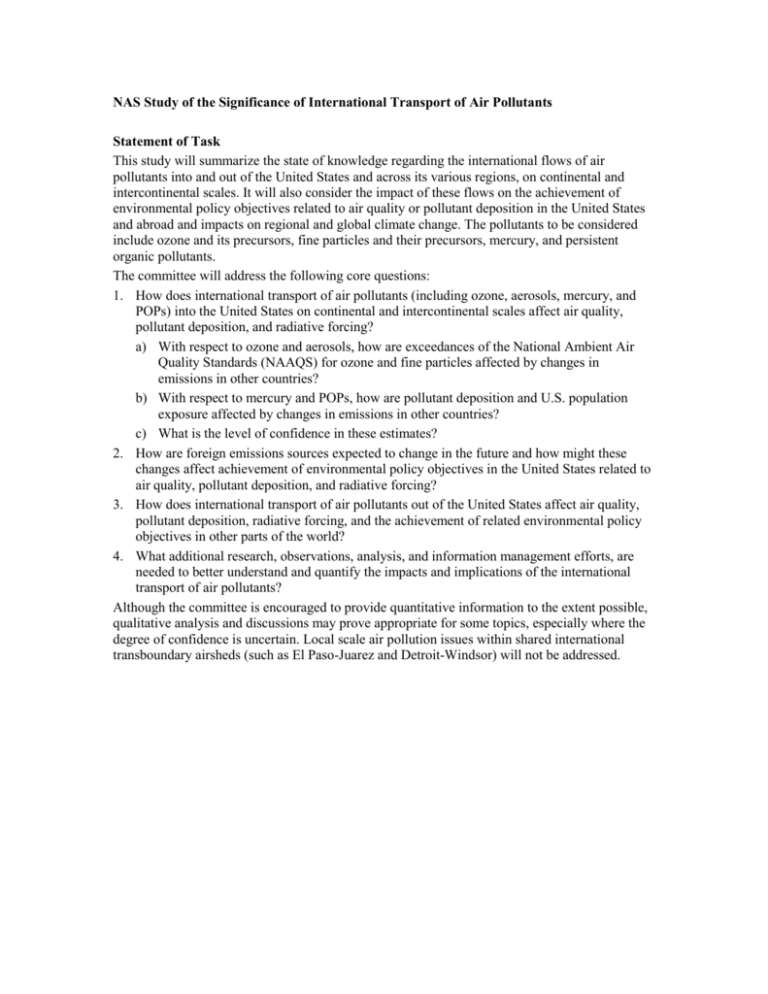
NAS Study of the Significance of International Transport of Air Pollutants Statement of Task This study will summarize the state of knowledge regarding the international flows of air pollutants into and out of the United States and across its various regions, on continental and intercontinental scales. It will also consider the impact of these flows on the achievement of environmental policy objectives related to air quality or pollutant deposition in the United States and abroad and impacts on regional and global climate change. The pollutants to be considered include ozone and its precursors, fine particles and their precursors, mercury, and persistent organic pollutants. The committee will address the following core questions: 1. How does international transport of air pollutants (including ozone, aerosols, mercury, and POPs) into the United States on continental and intercontinental scales affect air quality, pollutant deposition, and radiative forcing? a) With respect to ozone and aerosols, how are exceedances of the National Ambient Air Quality Standards (NAAQS) for ozone and fine particles affected by changes in emissions in other countries? b) With respect to mercury and POPs, how are pollutant deposition and U.S. population exposure affected by changes in emissions in other countries? c) What is the level of confidence in these estimates? 2. How are foreign emissions sources expected to change in the future and how might these changes affect achievement of environmental policy objectives in the United States related to air quality, pollutant deposition, and radiative forcing? 3. How does international transport of air pollutants out of the United States affect air quality, pollutant deposition, radiative forcing, and the achievement of related environmental policy objectives in other parts of the world? 4. What additional research, observations, analysis, and information management efforts, are needed to better understand and quantify the impacts and implications of the international transport of air pollutants? Although the committee is encouraged to provide quantitative information to the extent possible, qualitative analysis and discussions may prove appropriate for some topics, especially where the degree of confidence is uncertain. Local scale air pollution issues within shared international transboundary airsheds (such as El Paso-Juarez and Detroit-Windsor) will not be addressed.
